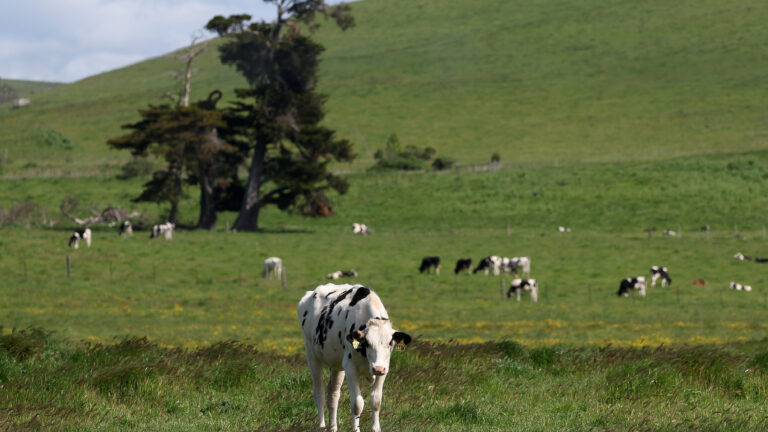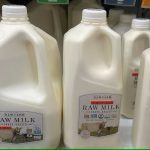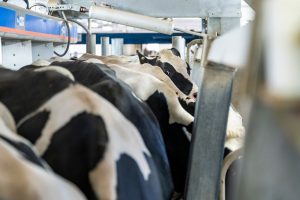
As the H5N1 strain hops from birds to more than 36 dairy farms in nine states, both Democratic and Republican lawmakers have pressed the Biden administration for quick and clear information on the risks for dairy cows and, potentially, people. But even as new tests show pasteurized milk is safe and agriculture officials impose testing regimens for interstate cattle moves, Republicans have another burgeoning concern — that alarm means harm for the dairy industry.
“The issue I have is, because it’s been talked about emotionally, people may respond to that,” said Glenn Thompson (R-Pa.), chairman of the House Agriculture Committee. “I just point to the swine flu [outbreak in 2009] that had nothing to do with hogs [but] had a significant negative impact on the hog industry.”
There has been one reported transmission of the current H5N1 strain to a farm worker, in Texas. Scientists and federal officials have said that while viral fragments in pasteurized milk do not appear harmful, raw milk — popular in states like Thompson’s, where it is legally sold — could still pose a threat.
“My concern is [the Biden administration is] going to be using this for more fear porn,” said Sen. Ron Johnson (R-Wis.), a vocal critic of the administration’s response to another infectious disease crisis, the Covid-19 pandemic. His state, Wisconsin, has reported H5N1 cases in birds but not cows.
Republicans insist they are not dismissing initiatives to bolster infectious disease resources, at least among livestock. Thompson’s committee on Wednesday released an outline for its renewal of the expansive Farm Bill, which allows oversight and support for agricultural programs that include the dairy industry, now in the throes of new testing and surveillance demands.
The bill summary says it “brings together provisions related to livestock health and management, foreign animal disease preparedness.” Thompson told STAT that these efforts predated the H5N1 outbreak, but that he is also separately pushing for more funds to back up the initiatives.
“Basically, we’re trying to double what we invest in terms of the trifecta of animal health,” or research, infrastructure, and personnel, he told STAT on Tuesday. That would be a roughly $2 billion investment — through the budget process — that he said has broad support.
The Farm Bill is scheduled for a May 23 markup by Thompson’s committee, its first step towards passage; a new federal budget, on the other hand, is on a distant horizon. In the meantime, state health officials and farm workers have already expressed concerns about keeping up with new federal testing requirements for dairy cows.
Scientists and even some Democrats say that testing, and the federal government’s information-sharing, have been too limited to get a clear picture of the H5N1 risk for other cows and potentially humans.
Some were left shocked when the Food and Drug Administration and Centers for Disease Control and Prevention last month released data showing that cases among cows were more widespread than previously thought, and that viral fragments were found in milk.
“The basic question here is why wasn’t more done to prevent this? Once this moves into cattle, potentially pigs, all this is increasing the chances for it to be contagious in humans,” said Nigel Sizer, executive director of a network of scientific research and advocacy organizations, Preventing Pandemics at the Source.
Stephen Ostroff, a former FDA deputy commissioner for food and veterinary medicine, also voiced concerns about how widespread testing truly is, and the lack of clear public communication about risks.
“It’s very reminiscent of the early stages of Covid, when we were flying a little bit blind, because we simply didn’t have sufficient testing capacity to be able to know exactly who was infected,” said Ostroff. “The lack of context for it is really a challenge. How many samples were tested? Where were they from?”
Democrats from dairy-laden states are also calling for a federal action plan to aid farmers struggling to isolate and test herds.
“The federal government has to step up to help our dairy farmers and producers weather and combat this outbreak, stop the spread of this virus, and ensure consumers know what is being done to keep them safe,” Sen. Tammy Baldwin (D-Wis.) said in a letter to agriculture officials Thursday.
But at least for now, Republicans are urging Americans to not panic.
Sen. Bill Cassidy (R-La.), the highest ranking Republican on the Senate Health, Education, Labor, and Pensions Committee, in April asked federal health and agriculture officials for committee briefings on the bird flu developments.
He told STAT on Tuesday that he texted CDC Director Mandy Cohen directly and they are trying to set up a briefing, and “she stressed that it’s not spread to humans.”
Cassidy admitted he’d “like to have more” information about potential risks, but “it seems like they are appropriately monitoring it.”
You can now read the most important #news on #eDairyNews #Whatsapp channels!!!
🇺🇸 eDairy News INGLÊS: https://whatsapp.com/channel/0029VaKsjzGDTkJyIN6hcP1K

























